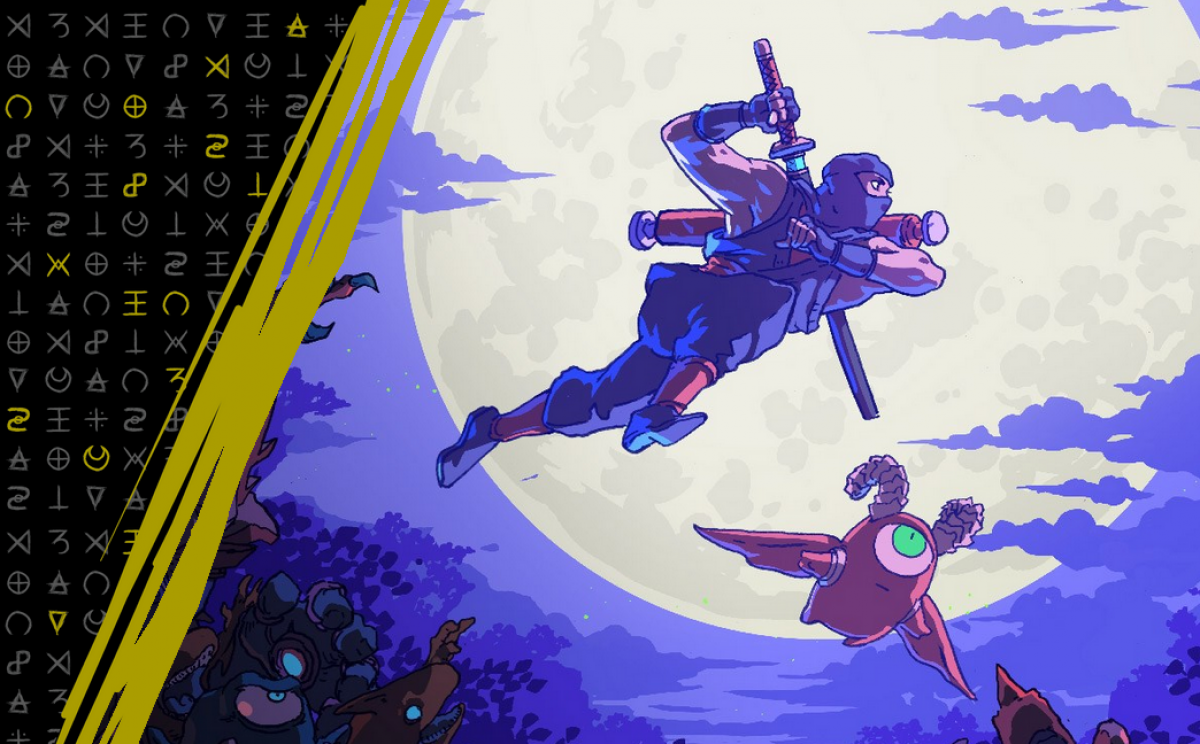The hardest part of any craft is to start doing it. The same is true for video game development. There are hundreds of millions of people passionate about games, and I would safely bet a huge part of those dreams from time to time about making a game of their own. Unfortunately, most of us let the idea float around without ever acting on it. It’s hard to find the time, energy, and motivation to start the colossal task of game development; even more, because it’s a complex craft with dozens of must-know skills to learn, and it’s easy to get lost with the overabundance of information about the subject. The process of deciding to follow the call of game development might be gradual, but there’s always a decisive moment; to me, it happened when I finished The Messenger for the first time.
The year was 2018, and I had the pleasure of working as a game critic for a couple of years by then. This period was responsible for a rekindled of my old dream of making games for a living, abandoned after my childhood for the pursual of “real” jobs. I’m really grateful for the opportunity of having to work with game journalism because it gave me the perfect excuse to play a lot more, think a lot more about gaming in general, study game design, and get in touch with wonderful developers from all around the world. And, most importantly, it allowed me to feed my love for independent development. Don’t get me wrong, super productions have their place in the world, and we all want to play a AAA title from time to time; it’s a reassuring experience, it usually doesn’t demand a lot and we can have quality entertainment without leaving our comfort zone. But it’s in independent development that the real magic frequently takes place.
Let’s get something obvious out there: indie developers are broke. We don’t have much money to work with, and a lot of us start to develop our first game while juggling a second job and our monthly bills. That means an indie developer needs to be smart about how to create a game. Every resource should be meaningful, each iteration of a prototype should be relevant, and all the decisions about the game should be cost-effective. All of that while still respecting your creative vision and taking into consideration how the player will have fun; and without the player, your project means nothing! This leads to using creativity and improvisation as everyday tools, and even the least pleasants of indie games often have something incredible to show despite their possible failure in reaching the public.
The Messenger is far from a failure, and the well-deserved Game Awards for Best Debut Indie Game is there to show it. But what’s genius about the game is that it reaches a high-quality level using somewhat simple tools. When you try to put away the excitement and wonder the game instills in you and starts to break down the game piece by piece, you come to realize a lot of the game is built upon things that already existed in other titles. There’s a lot of Ninja Gaiden, some of Metroid, and everything revolves around classic action-platformer tools. What makes The Messenger rise as such an important title, then, is not new ideas that were never thought of before (do ideas like this even exist?). The Messenger sets its page in the History of Games because of how it mixes and resignifies known tools, and then adds a lot of love, attention, and polishing on top of everything.
There’s a lot of hard labor involved in the making of a game like The Messenger, and the hardest part of the job is sitting in front of the computer and actually doing the work. There’s no magical solution, no one-million-dollar idea because even the most incredible and original insight a human mind can have means nothing if you don’t work on it. The game development work it’s a lot more sweat than contemplation, and that means you do not have to create something completely new to succeed, but you have to work on it, and even a game that comes from the intention to pay homage to another title can become one of the most unique experiences ever to be created!
All of this might be obvious, but it’s a realization that changes completely how to perceive game development. Everyone can do it, simply because it’s more a matter of work than inspiration. You need to learn, to try, to fail, to persist, to curse the heavens in agony… but everyone can do it, given enough time. Of course, time is not always available because of material conditions, like working double shifts just to pay your bills. But nothing else is needed; there’s no secret, no huge revelation, no gift given by the gods to illuminated chosen ones. All you need is patience and the will to keep pushing forward.
The Messenger is just a single example of how we can find the genius in simplicity when playing indie games, but it’s one of the most relevant ones to me because it was responsible for the decision that would change my life: I would become a game designer. It was an old idea, born out of childhood dreams, and fed in adulthood by dozens of amazing indie titles. But, as with every decision, there’s a moment of truth, and to me, it happened when the credits of The Messenger roled and my mind was rushing. “I want to make games like this, I can do games like this, I need to do games like this.” And here we are, two years later, with a studio and a project, determined to make games that might inspire other people as we were once inspired by such amazing works of art.



Join Our Coven